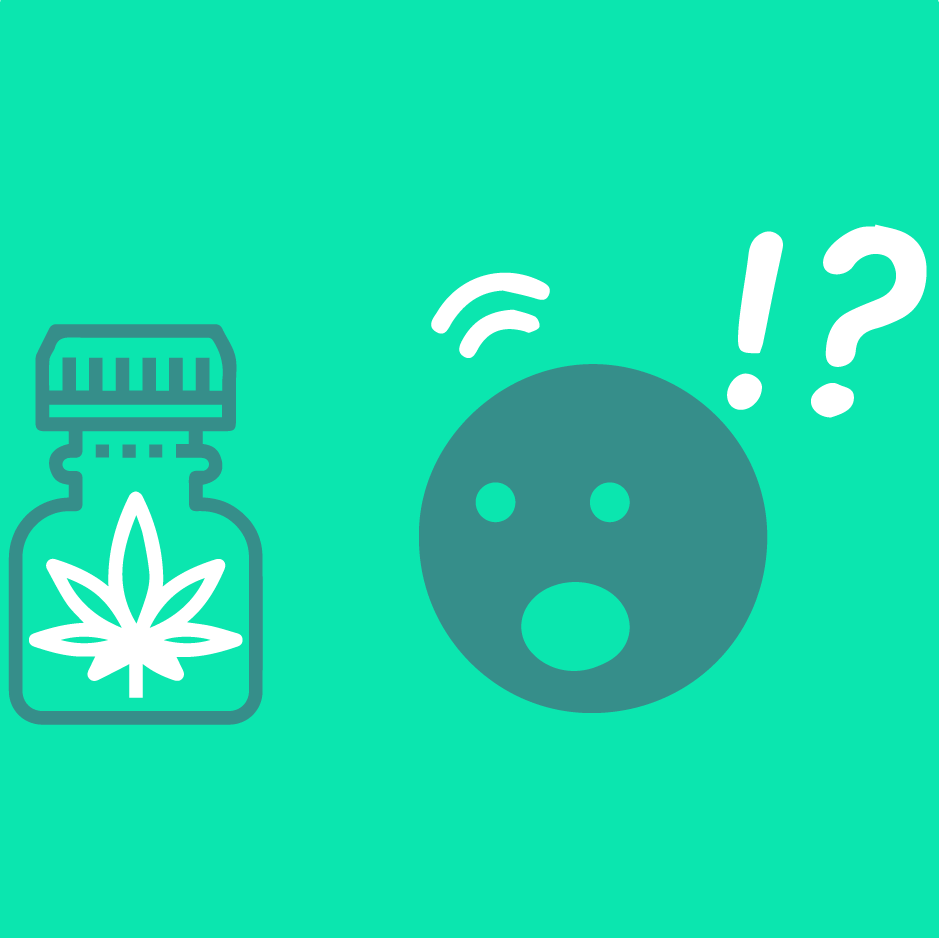Pain is a natural bodily process, a signal for danger and also for healing. It can come on suddenly in acute bursts or remain chronic, hidden in the background but no less impeding our daily lives.
Cannabidiol (CBD) is a relatively new substance but is quickly becoming a known source of pain relief for those with specific types of pain. Receiving a proper diagnosis for the source of your pain is the first step to figuring out whether CBD can help.
In order to do that, we have to know the two main types of pain and how CBD affects each one differently. This is a short guide to help with that understanding but is not meant to replace your doctor’s advice. Before starting on any new supplement, ask your doctor about its effects, possible interactions, and possible benefits to you and your pain.
Know your Pain
There are two types of pain: inflammatory and neuropathic. Understanding how each type works can help you decide whether CBD could be the solution to your pain.
Inflammatory pain occurs in your joints and muscles, often as a response to danger or injury. However, even after the injury has passed, some muscles can remain in a state of inflammation, which causes often low-grade but persistent pain.
Other conditions like arthritis (which causes inflammation in your joints), widespread diseases like some autoimmune disorders such as Crohn’s, and even routine aches and pains resulting from headaches and cramps can cause inflammatory pain.
Neuropathic pain is like inflammatory pain but limited specifically to the neuron pathways that your brain uses to communicate with your body. This pain centers on the glutamatergic system, which is responsible for activating the neuron pathways in your body.
When any of these pathways or processes are damaged by chronic illness or injury, inflammation is the body’s natural defense mechanism. This is normally a good thing: it’s why a routine injury or a malfunctioning cluster of cells doesn’t usually develop into cancer or out-of-control system failure. Inflammation convinces broken cells to stop working so we don’t have to deal with them.
However, if this becomes chronic, it becomes pain. Dealing with that pain first requires that you figure out which type it is. Once you do, you may be wondering if CBD can help.
Pain and CBD
Neuropathic pain is largely associated with tingling in your extremities and various degrees of burning sensations in the affected areas. CBD puts a hold on that glutamatergic system we talked about, serving as a “neuroprotective” that allows your body to manage the sensations of an out-of-control neuron system.
This is a fairly direct effect of CBD on sensations of pain. Inflammatory pain, however, isn’t as direct. This is because the cause of inflammatory pain is often much more difficult to diagnose.
Thankfully, the anti-inflammatory properties of CBD don’t have to be specific to work on most widespread pain conditions. Unlike most NSAIDs, which you may have realized come with risks to your gastrointestinal system and even your heart, CBD provides potent benefits to inflammation without those dangers.
Taken at the recommended starting dosage of 0.5 mg three times a day, CBD can work in tandem with other anti-inflammatory supplements in your medicine cabinet to start giving your body widespread relief from this kind of pain.
Since cannabidiol doesn’t contain THC like normal marijuana, it is also a non-psychotropic alternative to it, meaning it’s safe to take and won’t impede your senses. Despite this fact, don’t start on any new supplement or substance without first talking to your doctor about its possible effects on your body or its interactions with other supplements and medications you may be taking.
Summary
Before you know whether CBD will help you with your pain, you must know what type of pain you are experiencing and, if possible, what is causing it. Understanding the differences between inflammatory and neuropathic pain is the first step to knowing whether CBD will address the causes of your particular pain and provide you any relief.
Though we are just starting to conduct extensive research on this relatively new substance, CBD has already shown preliminary success in helping some people manage their pain. Before taking CBD, ask your doctor whether this supplement is right for you.






